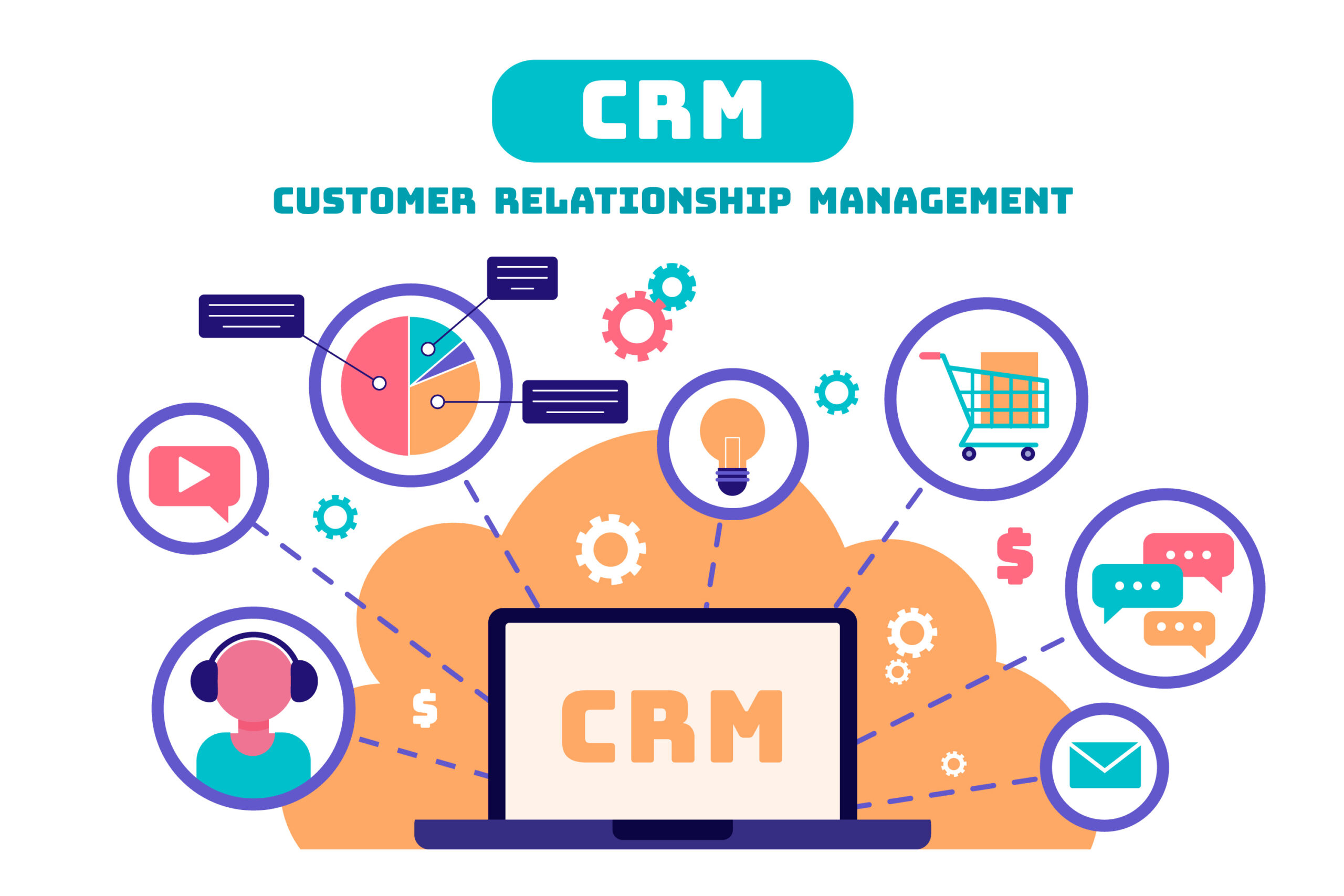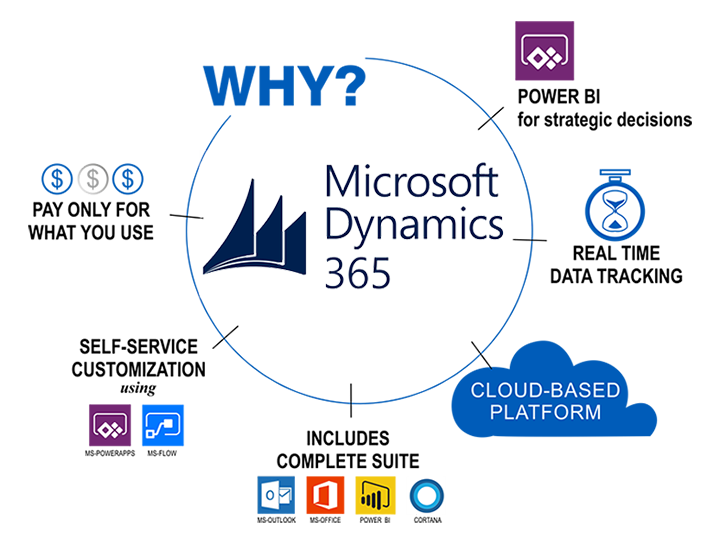CRM service providers play a pivotal role in the modern business landscape, empowering organizations to nurture and manage customer relationships effectively. By harnessing the power of technology, these providers offer a suite of solutions that streamline processes, automate tasks, and deliver valuable insights, enabling businesses to drive growth and enhance customer satisfaction.
In this comprehensive guide, we delve into the world of CRM service providers, exploring their offerings, benefits, and best practices. We’ll uncover the different types of CRM services available, discuss key features and functionalities, and provide practical advice on selecting and implementing the right solution for your business.
CRM Service Provider Overview
Customer relationship management (CRM) service providers are companies that offer software and services to help businesses manage their customer interactions and relationships. CRM systems can help businesses track customer data, manage marketing campaigns, and provide customer support.
There are many benefits to using CRM services. CRM systems can help businesses improve customer satisfaction, increase sales, and reduce costs. CRM systems can also help businesses gain a better understanding of their customers and their needs.
Popular CRM Service Providers
- Salesforce
- Microsoft Dynamics 365
- Oracle Siebel
- SAP Hybris
- Adobe Experience Cloud
Types of CRM Services

Customer Relationship Management (CRM) services encompass a range of offerings designed to assist businesses in managing and enhancing their interactions with customers. These services vary in terms of deployment models and functionalities, catering to the diverse needs of organizations.
Cloud-Based CRM
- Deployed over the internet, cloud-based CRM services reside on remote servers managed by the provider.
- Advantages:
- Scalability: Easily adjust service levels to meet changing business needs.
- Accessibility: Accessible from any internet-connected device.
- Lower upfront costs: No need for hardware or software investments.
- Disadvantages:
- Security concerns: Data is stored on external servers.
- Reliability: Dependent on internet connectivity.
- Limited customization: May not offer the same level of customization as on-premise solutions.
On-Premise CRM
- Installed and managed on the company’s own servers.
- Advantages:
- High level of control: Complete ownership and management of data and infrastructure.
- Security: Data is stored locally, reducing the risk of external breaches.
- Customization: Can be tailored to meet specific business requirements.
- Disadvantages:
- High upfront costs: Requires significant investments in hardware, software, and maintenance.
- Limited scalability: Difficult to scale up or down quickly.
- Maintenance burden: Requires ongoing IT support and updates.
Hybrid CRM
- Combines elements of both cloud-based and on-premise solutions.
- Advantages:
- Flexibility: Allows for customization while leveraging cloud-based services for scalability.
- Security: Sensitive data can be stored on-premise, while less critical data can be managed in the cloud.
- Scalability: Cloud-based services can be used to supplement on-premise infrastructure during peak periods.
- Disadvantages:
- Complexity: Requires careful planning and integration to ensure seamless operation.
- Cost: Can be more expensive than either cloud-based or on-premise solutions alone.
- Maintenance: Both on-premise and cloud-based components require ongoing maintenance and updates.
| Feature | Cloud-Based | On-Premise | Hybrid |
|---|---|---|---|
| Deployment | Internet-based | On-site servers | Combination of both |
| Scalability | Easy to scale up/down | Difficult to scale quickly | Flexible scalability |
| Cost | Lower upfront costs | Higher upfront costs | Moderate upfront costs |
| Security | Potential security risks | High level of security | Security varies depending on configuration |
| Customization | Limited customization | High level of customization | Flexible customization |
| Maintenance | Managed by provider | Managed by organization | Managed by both |
Features and Functionality
CRM service providers offer a comprehensive suite of features and functionalities designed to streamline business processes and enhance customer engagement. These features include:
Contact Management
- Centralized storage and organization of customer data, including contact information, demographics, and communication history
- Automated contact segmentation and lead qualification
- Tracking of customer interactions across multiple channels
Sales Automation
- Lead generation and qualification tools
- Automated sales workflows and pipelines
- Opportunity tracking and forecasting
- Sales performance reporting and analytics
Marketing Automation
- Email marketing campaigns and segmentation
- Social media marketing integration
- Lead nurturing and scoring
- Marketing analytics and ROI tracking
Customer Support
- Ticketing and case management
- Live chat and self-service portals
- Knowledge base and documentation
- Customer feedback and satisfaction tracking
Data integration and analytics are essential aspects of CRM systems. Integration with other business systems, such as ERP and accounting software, enables a holistic view of customer data. Analytics capabilities provide insights into customer behavior, sales performance, and marketing effectiveness, allowing businesses to make data-driven decisions.
Selecting the right CRM features for specific business needs is crucial. Consider the following best practices:
- Identify the core business processes that need to be automated
- Assess the size and complexity of the customer base
- Evaluate the level of integration required with other systems
- Consider the budget and resources available
Implementation and Integration
Implementing a CRM system is a multi-faceted process that involves careful planning, data migration, and user training. It also requires integrating the CRM system with other business applications, which can present challenges.
Planning
The first step in implementing a CRM system is to develop a clear plan. This plan should Artikel the project scope, objectives, timelines, and budget. It should also identify the key stakeholders and their roles in the implementation process.
Data Migration
Once the plan is in place, the next step is to migrate data from the old system to the new CRM system. This can be a complex and time-consuming process, so it is important to carefully plan and execute the data migration.
User Training
Once the data has been migrated, the next step is to train users on the new CRM system. This training should cover all aspects of the system, from basic navigation to advanced functionality. It is important to provide users with ample training and support to ensure that they are able to use the system effectively.
Integration
Integrating a CRM system with other business applications can be a challenge. However, it is important to integrate the CRM system with other applications, such as accounting, marketing, and sales, to get the most value from the system.
Challenges
There are a number of challenges that can arise during the implementation of a CRM system. These challenges include:
- Data quality
- User adoption
- Integration
- Cost
Best Practices
There are a number of best practices that can help to ensure a successful CRM implementation. These best practices include:
- Involve key stakeholders in the planning process
- Develop a clear and concise implementation plan
- Carefully migrate data from the old system to the new CRM system
- Provide users with ample training and support
- Integrate the CRM system with other business applications
Case Study
One example of a successful CRM implementation is the implementation of Salesforce at Coca-Cola. Salesforce has helped Coca-Cola to improve its sales productivity, marketing effectiveness, and customer service. Coca-Cola has also been able to integrate Salesforce with its other business applications, such as SAP and Oracle.
Pricing and Cost Considerations

When selecting a CRM service provider, it’s crucial to consider the pricing models and cost factors involved. Different providers offer varying pricing structures, and understanding these models will help you make an informed decision.
Pricing Models
- Subscription Fees:A fixed monthly or annual fee that grants access to the CRM platform and its features.
- Per-User Fees:A charge per user that utilizes the CRM system, regardless of usage.
- Transaction Fees:A fee charged for each transaction processed through the CRM, such as sales orders or customer interactions.
- Tiered Pricing:A pricing structure that offers different levels of service and features at varying price points.
Factors Influencing Cost
Several factors influence the cost of CRM services:
- Number of Users:The more users accessing the CRM, the higher the cost.
- Level of Support:Enhanced support options, such as dedicated account managers or 24/7 technical assistance, come at a premium.
- Features Included:The number and complexity of features offered in the CRM platform impact the pricing.
- Customization and Integration:Customizing the CRM to fit specific business needs or integrating it with other systems can incur additional costs.
Pricing Comparison
The pricing of CRM service providers varies depending on the factors mentioned above. The following table provides a rough comparison of pricing for different providers:
| Provider | Pricing Model | Cost Range |
|---|---|---|
| Salesforce | Subscription + Per-User | $25-$300 per user/month |
| Zoho CRM | Tiered Pricing | Free-$375 per month |
| HubSpot CRM | Free + Paid Plans | Free-$1,200 per month |
| Microsoft Dynamics 365 | Per-User + Transaction Fees | $65-$210 per user/month |
Note that these prices are approximate and may vary depending on specific requirements and negotiations.
Market Trends and Innovations: Crm Service Providers

The CRM industry is constantly evolving, with new trends and innovations emerging all the time. These trends are having a significant impact on the way businesses manage customer relationships, and they are likely to continue to shape the industry in the years to come.One of the most important trends in the CRM industry is the rise of artificial intelligence (AI).
AI-powered CRM solutions can automate many tasks that were previously done manually, such as lead scoring, customer segmentation, and personalized marketing campaigns. This can free up CRM users to focus on more strategic tasks, such as building relationships with customers and developing new business opportunities.Another major trend in the CRM industry is the increasing popularity of mobile CRM solutions.
Mobile CRM solutions allow sales and marketing teams to access their CRM data and functionality from anywhere, at any time. This can give businesses a significant competitive advantage, as they can be more responsive to customer needs and opportunities.The convergence of AI and mobile CRM is creating a new generation of CRM solutions that are more powerful and user-friendly than ever before.
These solutions are helping businesses to build stronger relationships with their customers and achieve greater success.
Examples of Innovative CRM Solutions, Crm service providers
Here are a few examples of innovative CRM solutions that are transforming the way businesses manage customer relationships:* Salesforce Einstein: Salesforce Einstein is an AI-powered CRM solution that can automate many tasks, such as lead scoring, customer segmentation, and personalized marketing campaigns.
Einstein can also provide insights into customer behavior, which can help businesses to make better decisions about how to market to and serve their customers.
HubSpot CRM
HubSpot CRM is a free and easy-to-use CRM solution that is ideal for small businesses. HubSpot CRM includes a variety of features, such as lead management, email marketing, and customer support.
Zoho CRM
Zoho CRM is a powerful and affordable CRM solution that is suitable for businesses of all sizes. Zoho CRM includes a wide range of features, such as sales automation, marketing automation, and customer support.These are just a few examples of the many innovative CRM solutions that are available on the market today.
As the CRM industry continues to evolve, we can expect to see even more innovative and powerful solutions emerge.
Final Summary
As the business landscape continues to evolve, CRM service providers will remain indispensable partners for organizations seeking to excel in customer engagement. By embracing innovation and leveraging the latest technologies, these providers will continue to empower businesses to build lasting relationships with their customers, drive revenue growth, and achieve operational excellence.